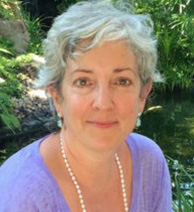 Much has changed in the United States—and the world—since Integral Yoga started to put together its Yoga Therapy certification program. Satchidananda Ashram–Yogaville (Integral Yoga’s headquarters) is located close to Charlottesville, Virginia, where in 2018, “Unite the Right” happened (now referred to chillingly as “8/11”) and was a horrifying display of how unresolved many of America’s race problems truly are. This was only to be the beginning of a series of tragedies that invigorated the #BlackLivesMatter movement and the push for greater racial and social justice reforms.
Much has changed in the United States—and the world—since Integral Yoga started to put together its Yoga Therapy certification program. Satchidananda Ashram–Yogaville (Integral Yoga’s headquarters) is located close to Charlottesville, Virginia, where in 2018, “Unite the Right” happened (now referred to chillingly as “8/11”) and was a horrifying display of how unresolved many of America’s race problems truly are. This was only to be the beginning of a series of tragedies that invigorated the #BlackLivesMatter movement and the push for greater racial and social justice reforms.
I remember back to that date and how the annual Symposium on Yoga Therapy and Research (SYTAR)sponsored by the International Association of Yoga Therapists (IAYT) was held just a few months earlier, only 100 miles or so from Charlottesville. It was during SYTAR 2018 that I felt several changes in the theme of our ongoing Yoga Therapy discussion, which up to that point had seemed to often center around Yoga’s ability to be integrated into the western medical model. One of those changes was how people within the Yoga Therapy field have been looking at these racial and social justice issues and naturally want to include discussion of larger society issues within the context of how we offer Yoga Therapy.
The other shift was in recognizing that one of the things that makes people uneasy is that as we as Yoga therapists integrate into the allopathic model, we lean toward treating disease rather than the unique individual manifesting the imbalance that allopathy names as arthritis or cancer, etc. During the 2108 conference, both Dr. Timothy McCall (“Treat What You See, Not the Diagnosis”) and Dr. Ananda Balayogi Bhavanani (Director of the Centre for Yoga Therapy Education and Research and Professor of Yoga Therapy at the Sri Balaji Vidyapeeth University) touched eloquently on these ideas in their presentations to the general session. From the conversations at SYTAR we could see clearly that our membership is drawn to considering the culture in which modern diseases manifest and how Yoga Therapy can help at that level.
“We understand that it may not be possible politically right now to do research truer to Yoga Therapy’s holistic nature because of the insistence on standardized protocols based on medical diagnosis.” —Dr. Timothy McCall on “evidence-based” Yoga therapy
I had no medical training before I trained in Yoga, Ayurveda and Yoga Therapy. I am glad to have colleagues who have been medically trained and I listen to their stories of how they often needed to come to Yoga Therapy when their own system offered a researched cure but did not give them more compassionate care and when the medical model’s prescriptions and surgeries helped relieve symptoms but did not help with answers that met their deeper life’s questions and yearnings. When we reach out to people with issues of institutional racism, sexual trauma, refugees, prisoners, veterans, we hopefully come from a place where we can share how Yoga brought us (back) to our wholeness after experiencing the suffering in our world.
I feel this deeply as I serve in my world. Back when such things were possible, a group of women in recovery gathered at a friend’s house to watch my Yoga of Recovery interview on Recovery 2.0. There were around 10 of us—women in recovery from addiction, but within this group there was a broad range of suffering/diseases other than addiction: grief, COPD, court troubles, post-surgery, allergies, pain, etc. Hence, I do believe this “identity” approach is a more useful perspective than following the more narrow and limited approach of framing Yoga Therapy toward a particular disease. Yet, that also has its limitations; we must take care not to get lost in politics or become social workers, which is not our role either. As Yoga therapists we are there to offer people the truest freedom of life, to know their true self—beyond all race, color, creed, financial, political and economic concerns. It is what primarily attracted me to this field; it profoundly helped me to resolve my own life issues/diseases/stresses/traumas—all my life’s karmas. Yoga responded to my whole life issue and I personally am grateful that under the guidance of the spiritual intelligence of Yoga I can choose therapies, tools, and modalities to work with symptoms and current concerns of this mortal vehicle of mind/body.
Integral Yoga is an international organization, and each country has its own history of mistreatment and crises that affect each person. I know from my own work with Yoga of Recovery that the debates around the current DSM-V (the diagnostic manual used by mental health professionals) center around how the United States would like to move toward more effective bio-markers of mental health problems whereas the British Psychological Society has indicated that they feel more broad social issues must be taken into account.
Yoga is an ancient wisdom system now available for all people—regardless gender, colors and races, or other characteristic—and the fundamental instruction of Sri Patanjali is to get our social and personal behavior in order so we can balance the body/mind and then transcend them. It is good to see discussions about how our clients are affected by the culture they live in. Particularly timely is Dr. Gail Parker’s work on ethnic and race-based stress and trauma and the wider field of social activism and community healing—topics that SYTAR is now including in its conferences. I’m immediately drawn to these topics as I believe they allow us to expand our reach to the underserved in our society. My feeling is that if we too narrowly follow the medical model in the hope to be accepted as an integrative therapy we may miss the legions of people who are uninsured, those who are undocumented, those whose health issues may lead to legal repercussions and those who really want to find bigger answers because they see such strength of spirit and compassion in all people.
As I attend SYTAR each year, I get to hear from people like Dr. Irene Hauzinger who did a longitudinal study on Yoga for women inmates, where the female inmates wrote the research questions. Dr. Hauzinger asked the inmates what they wanted Yoga professionals “on the outside” to know. They want us to know that:
- They love Yoga
- They say “Thank you”
- They want their whole family to have access to it!
Love, gratitude and sharing—that is the spirit of Yoga already within them. Yoga offers freedom from suffering even while the individual and societal problems remain—and the reminder that we change ourselves first, then the world changes
Jana Long, of the Black Yoga Teachers Alliance, states a very true fundamental truism of service in the Yoga field as she described BYTA’s Yoga as a Peace Practice curriculum: “We’re committed to the initiative. We don’t hold onto the outcome, and we concentrate on our ability to keep the initiative moving forward. Yoga therapy is not just for the victims of violence but for those that perpetrate and perpetuate violence; it’s about contemplative work in the community with each other.”
Attending conferences and serving through Integral Yoga, I have the honor of meeting people like Dr. Sandra Amrita McLanahan, Dr. Mala Cunningham, and Nischala Joy Devi who have been bringing the focus of the mind-body interaction to the medical field for decades. They teach how important it is that we offer tools to help the person suffering with the disease. Many of the employees in the allopathic medical model have a very personal understanding of how both the staff and the patients of that system need the kind of help Yoga Therapy can offer —to help everyone cope with the stress of life, the disease, or the medical insurance coverage system!
I heard a Structural Yoga therapist speak of how when someone has injured a limb, they tend to call it their “bad arm or leg.” How this simple statement shows our mind/body disconnect and how this plays out at a societal level too. If we can re-incorporate the “bad arm or leg” at the level of our own body, can we also become more inclusive to all parts of our society too? Can we welcome all people in our community to experience Yoga therapy, both within and outside of the medical model?
I am grateful that such a long-standing Yoga organizations, like Integral Yoga and Sivananda Yoga have worked to add Yoga therapy to their training options. It is so important that the Yoga must be kept in Yoga Therapy otherwise it is yogopathy (a term coined by Dr. Ananda Balayogi Bhavanani. We must think in terms of salutogenesis (factors that support health and well-being) and not pathogenesis. In other words, we must focus on health promotion not just the disease. Yoga can offer a sense of coherence and help people find an understanding of their situation that supports them to feel their life is manageable and has meaning. “As Yoga therapists, unless we aim to correct the manifest psycho-somatic disassociation as well as the underlying ignorant, distorted perception of reality in the individual,” Dr. Bhavanani counsels, we are not practicing Yoga chikitsa (Sanskrit term for Yoga therapy).”
Dr. Bhavanani observed that many people claim they are teaching “Trauma-sensitive Yoga” but are unable to describe what trauma is in terms of the yogic model. Dr. Bhavanani alluded to Yoga’s understanding of trauma (undigested sensory life experiences) when he says that not all digestion happens in the stomach. Our suffering starts with the kleshas (five causes of suffering as described by Patanjali in the Yoga Sutras) and we live in a disintegrated state, with our koshas (layers of being) out of alignment—both on the macro and micro levels.
I look forward to more opportunities to renew, expand, and reconnect with the wonderful faculty and students of the Integral Yoga and Sivananda Yoga Therapy training programs where I am grateful to share both the great gift of Ayurveda (the science of life) and the Yoga of Recovery—the embodiment and evolution of the solution to our addictiveness.
About the Author:
 Durga Leela, BA, C-IAYT, AYT, eRYT500, CAS/PKS, is the founder of Yoga of Recovery®, a comprehensive program that integrates Yoga and Ayurveda with recovery tools for those affected by addiction and self-destructive behaviors. She is on faculty for several IAYT accredited schools and has trained hundreds of licensed professionals such as MFTs, LCSWs and ASAM psychiatrists. www.Yogaofrecovery.com. [email protected]
Durga Leela, BA, C-IAYT, AYT, eRYT500, CAS/PKS, is the founder of Yoga of Recovery®, a comprehensive program that integrates Yoga and Ayurveda with recovery tools for those affected by addiction and self-destructive behaviors. She is on faculty for several IAYT accredited schools and has trained hundreds of licensed professionals such as MFTs, LCSWs and ASAM psychiatrists. www.Yogaofrecovery.com. [email protected]
(This article was adapted from an article published earlier in the International Journal of Yoga Therapy)

